HeDPAC-supported countries discussed progress towards integrating certified community health workers into the civil service and agreed on a maturity monitoring index.

Jun 9, 2025
Kigali, Rwanda – June 9, 2025
Policy makers and technical experts from the Ministries of Health and Ministries of Civil Service and Public Administration of African countries participated in a High-Level Consultative Meeting on June 2-3, 2025, in Kigali, Rwanda, and discussed the progress on the integration of Certified Community Health Workers (CHWs) into Civil Service Systems. The event was co-organized by the Health Development Partnership for Africa and the Caribbean (HeDPAC) and the Health and Public Service Network of Africa (HaPSNA), bringing together senior government officials and technical experts from Liberia, the Central African Republic, Sierra Leone, Burkina Faso, and Rwanda.
The meeting was part of the broader activities of HaPSNA, an intersectoral network of African Ministries of Health and Ministries of Civil Service and Public Administration, committed to addressing persistent human health workforce challenges through South-South Partnerships and championing the integration of certified CHWs into the civil service.
Dr. Haileyesus Getahun, CEO of HeDPAC, said ‘Integrating Community Health Workers into the civil service is a driving force for universal health coverage and delivering sustainable health solutions.’ He commended HaPSNA for being an important platform for the close collaboration between Ministries of Health and Civil Service Agencies to integrate certified CHWs into national civil service systems.
Dr. Josiah F. Joekai Jr., Chairman of HaPSNA and Director-General of Liberia’s Civil Service Agency, said ‘HaPSNA is no longer a concept. It is a reality that can transform the human health workforce through South-South partnerships and ensure that the unsung heroes of our health system, the community health workers, are no longer invisible in civil service planning and public policy execution.’’
Participants of the meeting reviewed, discussed, and endorsed the policy interventions and the maturity index for integrating CHWs into the civil service system. These tools will facilitate peer learning among countries, defining actionable next steps for implementing and monitoring CHW integration within national civil service systems.
The CHW Policy Interventions Package is a strategic tool to support Ministries of Health and Civil/Public Service in institutionalizing CHWs within national civil service systems. Its primary objective is to facilitate government-led reform of community health programs to strengthen PHC systems and advance progress toward Universal Health Coverage (UHC). The policy interventions package outlines nine essential components to effectively integrating CHWs into PHC structures and the civil service systems under two main pillars: (1) creating a conducive political, legal, and financial environment; and (2) ensuring the proper selection, training, deployment, fair remuneration, and ongoing motivation of CHWs. These interventions encompass the development of national policies and legal frameworks, standardized training programs, fair compensation, reliable supply chains, and supportive supervision mechanisms. The package also highlights the importance of establishing dedicated coordination units, securing sustainable financing, and implementing robust monitoring systems that align with national health priorities. By providing a clear roadmap for transitioning CHWs from informal roles to formal positions within the civil service, the CHW Policy Interventions Package aims to improve health outcomes, expand employment opportunities for women and youth and reinforce the foundation of strong PHC systems.
The maturity index for integrating CHWs into the civil service system is a strategic tool, nearing finalisation to support Ministries of Health and Civil/Public Service in assessing and advancing the integration of CHWs into national systems. Designed as a practical and adaptable framework, the Index enables governments to evaluate their CHW programs across four key dimensions: certification, salaried employment, consistent supply provision, and integration into PHC systems. By categorizing progress into defined maturity levels, the tool provides a structured basis for identifying strengths, gaps, and priorities for reform. It is intended to guide policy decisions, support intersectoral planning, and promote accountability through periodic national self-assessments. Once finalized, the Maturity Index will serve as a valuable instrument for ministries to benchmark progress, inform investment strategies, and accelerate the integration of CHWs as a cornerstone of resilient and equitable health systems advancing toward UHC.
During the meeting, countries shared their experiences and reported on the progress of integrating CHWs to civil service systems.
Liberia presented its successful transition of CHWs onto the civil service payroll through collaboration between the Ministry of Health, the Civil Service Agency and the Ministry of Finance and announced that 317 Community Health Services Supervisor (CHSS) positions previously supported by partners will be integrated into the civil service this year.
Burkina Faso highlighted its ongoing policy reforms, including parliamentary engagement on a draft law establishing CHW status, and efforts to include CHWs in the national public health code to enable formal civil service integration.
In Sierra Leone, CHWs are currently not integrated into the public service and continue to operate under contractual arrangements. The Ministry of Health has expressed strong leadership and commitment to advancing a sustainability plan for CHWs, signaling progress toward their institutionalization within the civil service framework. As part of this initiative, the Ministry organized a high-level dialogue led by the Minister of Health, involving the Ministry of Local Government, mayors from all districts, District Health Management Teams, and development partners. The dialogue focused on exploring policy options for integrating CHWs into the public system through local governance mechanisms.
The Central African Republic (CAR) has initiated a pilot program integrating 100 Community Health Workers (ASCs) into the public sector as civil servants. This marks a significant step toward institutionalizing CHWs within the civil service. Building on this progress, the government plans to scale up integration efforts by mapping employment needs, updating candidate lists by sub-prefecture, and designing region-specific employment project sheets. This structured approach reflects a growing commitment to formalizing CHWs as part of the national health workforce.
In Rwanda, Community Health Workers (CHWs) are not yet formally integrated as public employees; however, they are fully embedded within the Primary Health Care (PHC) system. Operating through structured linkages with health centers, district hospitals, and referral facilities, CHWs play a vital role in frontline service delivery. The country has made commendable progress in securing sustainable financing for its community health program. CHW support is integrated into national budgets and backed by a performance-based financing (PBF) model that rewards results. CHW cooperatives and pooled funding from the government, communities, and development partners further promote long-term financial sustainability and local ownership. On the digital front, Rwanda has implemented a national CHW electronic medical records (CHW-EMR) system, fully integrated with the national Health Management Information System (HMIS). This digital platform supports real-time service tracking, stock management, and data-driven decision-making. CHWs are equipped with mobile technology, enabling efficient data capture and reporting, while integration with the national social registry enhances coordination across health and social sectors.
The meeting concluded with strong momentum for national action, grounded in local context and regional collaboration. HeDPAC and HaPSNA reaffirmed their commitment to supporting countries in sustaining these reforms and promoting continued South–South learning. With CHWs now widely recognized as vital to primary health care delivery and attainment of universal health coverage, the meeting marked a significant step toward building more resilient and equitable health systems rooted in PHC and local ownership.


